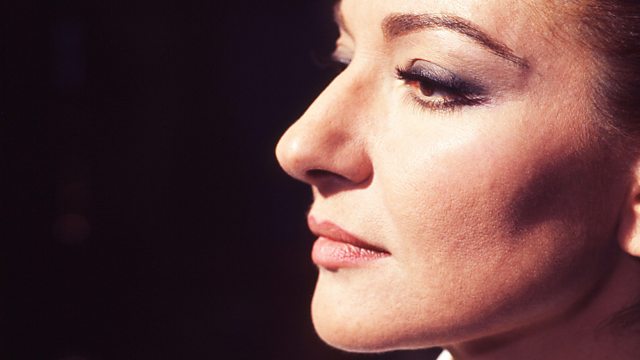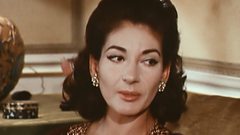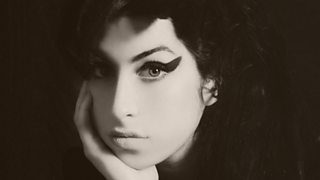Maria Callas: The Final Act
In this new film from Arena, a cast of musical experts and admirers uncover the truth about the Maria Callas myth and the gift of her extraordinary voice.
Known around the world for her glamour and fiery temper as much as her voice, Maria Callas was the great classical diva of modern times.
The myth of Callas is that she tragically gave up her God-given talent for the love of shipping billionaire Aristotle Onassis who then dumped her for Jackie Kennedy. However, as this new film from Arena and director Clare Beavan argues, it isn’t true. There was one thing that mattered to Callas more than anything – her astonishing, life-changing voice, and the real tragedy of her story is that she lost it far earlier than people think.
This film is a detective story: what was it that made Maria Callas lose her voice and how early in her career was it beginning to deteriorate?
Musicologist and conductor Will Crutchfield has studied the development of Callas’s voice and he believes it had a fatal flaw, a ‘wobble’ detectable in her very earliest recorded performances. In order to uncover where this flaw came from, it’s necessary to understand how Callas became an icon. Through a cast of deeply knowledgeable contributors and compelling archive, including numerous interviews with Callas herself, this film unpacks Callas’s early life, how she was trained in opera singing, and what happened to her when she became a feted soprano.
The film is also a celebration of Callas - her brilliance, originality and determination to be the greatest opera singer alive. Soprano Nadine Benjamin explains the great appeal of Callas – her supreme ability to convey emotion through her voice: 'She just really wished you to hear the character’s love, the character’s woe, the character’s pain.' Callas’s impact on classical music was revolutionary, bringing forgotten roles into the limelight and making them her own: magnificent, indomitable heroines. She is the artist who reminded the world what opera is for.
Conductor Richard Bonynge, widower of soprano Dame Joan Sutherland, and someone who knew Callas, talks about watching her perform in her prime. 'She had this incredible gift. And when she walked on the stage you knew something was happening… She kept you spellbound.' Sir Simon Schama recounts how, as a 19-year-old, he was lucky enough to see Callas perform Tosca at the Royal Opera House in 1964. Although relatively late in her singing career, Callas’s performance – the acting as well as the singing – enraptured the young Schama: 'She was apparently on the downward slope. I had no idea about that. For me this voice was absolutely majestic.'
Daisy Goodwin, author of Diva, a novel about Callas’s life, deconstructs the Onassis myth, and what she sees as the sexist assumption that Callas’s eventual downfall was due to a man. Far from Callas throwing her career away for Onassis, her relationship with him perhaps offered Callas a way out when she already knew her voice was failing. Why do we so often fall into the trap of seeing great female artists though the lens of their love lives and not their art?
Biographer Sophia Lambton explores the possible effects of the extreme weight loss that Callas experienced in the early 1950s, after which she was transformed into a global fashion – as well as an opera – star. As Callas superfan Rob Rinder explains: 'She willed herself to be the most beautiful version of herself she could… Imagine the effort it took to be Maria Callas.' Through the 1950s and 60s, her glamour became part of her global appeal.
Possible theories have been advanced as to what caused Callas’s rapid weight loss, but Callas herself often talked about was her obsession with food: 'I have a very ridiculous and embarrassing hobby... a mania shall we call it. I love recipes. I know I’ll never use them.' Tommaso Pagani, curator of a private Callas archive collection in Italy, reveals some of the countless handwritten recipes that Callas created over the years, and a treasure-trove of personal photos that show Callas at her most unguarded.
So, why did Callas lose her voice? And how much did she know about what was happening to her? According to Crutchfield, the way Callas pushed her voice to extremes to create the vocal effects for which she was adored ultimately exacerbated her fatal flaw: 'I think it gave her certain advantages that meant a lot to her. One of the things that everyone observes about Callas is this quality of stillness and intimacy. I think cultivating this little private voice gave her a range of colours that she knew she could use to magical effect. And I think she loved that.'
This is the story of Maria Callas as it’s never been told before: the tragedy of a woman who knew she was the greatest, but also knew that her greatness could not last.
Last on
Clip
-
![]()
"Here is the best soprano history has shown us"
Duration: 02:03
Featured in...
![]()
Music Icons
Discover the greatest collection ever, with musicians whose music influenced the world.
![]()
Extraordinary Lives
Meet remarkable individuals whose lives inspire and astonish
![]()
Trailblazing Women
Celebrating trailblazing women - their work, lives and passions.
![]()
In Profile
Famous names as you've never seen them, and a spotlight on forgotten figures.
![]()
iPlayer Arts Category :: Featured Episodes
iPlayer Arts category featured programmes




